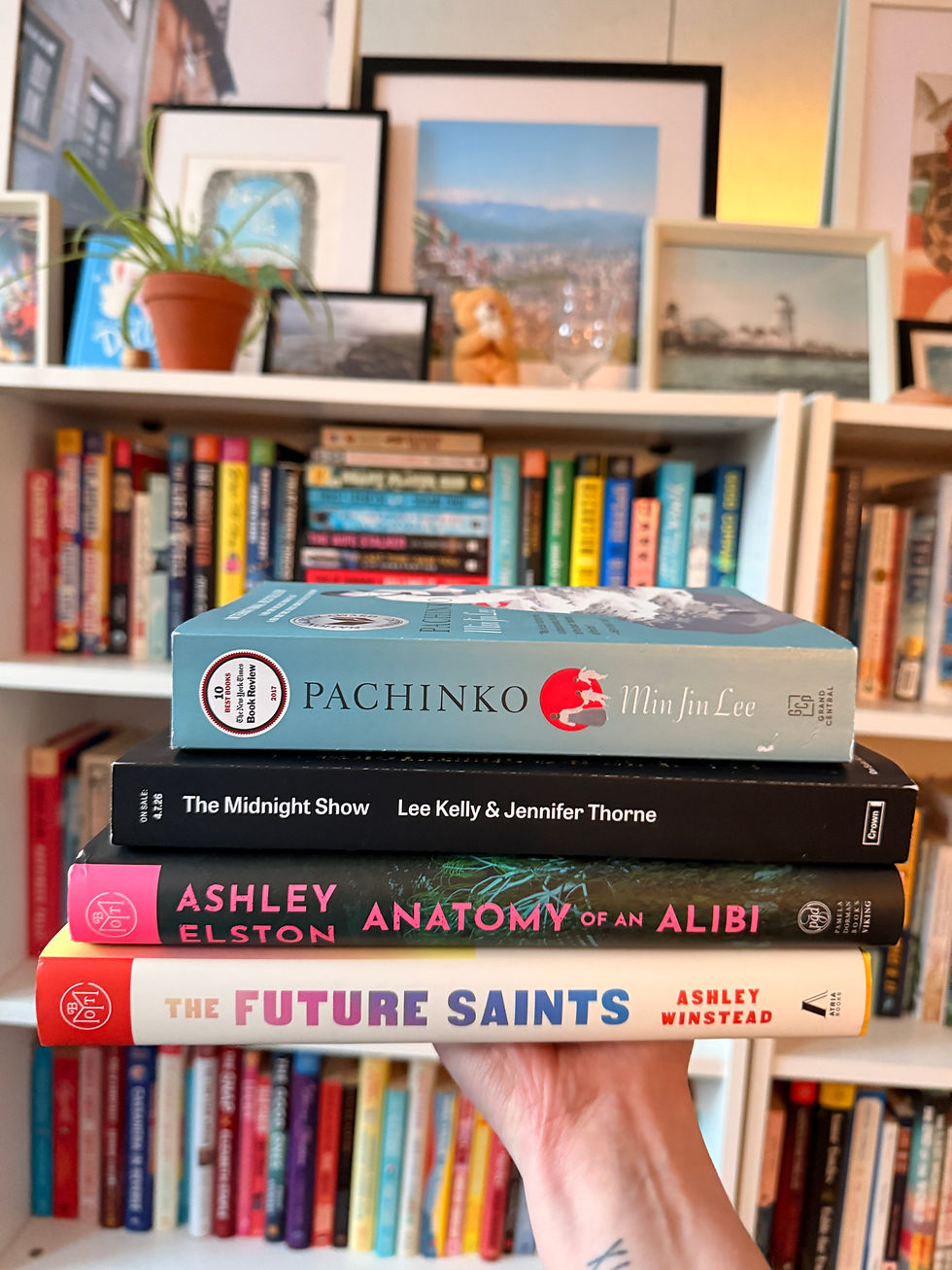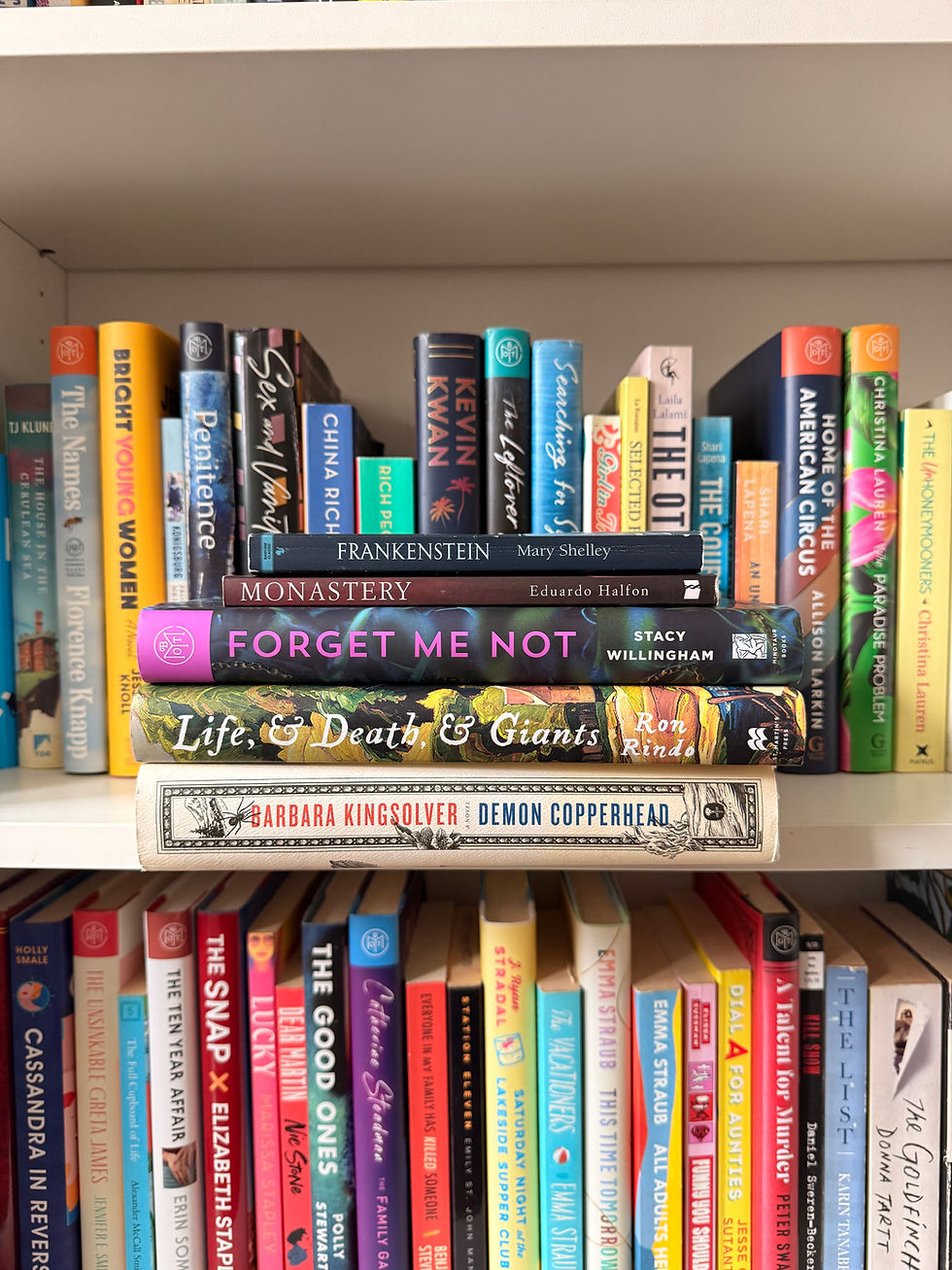Thoughts on Grief and Blurry Memories
- Olivia Swindler
- Aug 21, 2023
- 6 min read

I can sense the arrival of August 21st. Each year, even if I am not monitoring my calendar, there is a shift in my body. This is the thing about grief; it will not be ignored. It pulls and pushes its way to the surface. The manifestation might look different from year to year, person to person, but that doesn’t mean it’s not present.
I have tried to befriend my grief as much as I can. We are on the same team. We have the goal of making sure the memory of my mother is not lost to the cruelness of time. My grief helps me to remember.
Today marks eighteen years since my mother died. It feels surreal to type that. On the one hand, it feels like yesterday. I can still picture her hospital room, the taped sign above her bed that said “allergic to latex,” her arm permanently swollen from lymphedema, her tattooed lip and eyeliner, and how every nurse and doctor said how much they loved her.
But it feels like a lifetime ago; the memories I’ve cherished are slowly starting to blur around the edges. Was she actually allergic to latex, or did I make that up? Was it her right or her left arm that was swollen? What was the name of her doctor?
Who actually has vivid memories of their life eighteen years ago? I wish I had known what would be significant and worth clinging to, replaying over and over so that it was so embedded in my brain that it would be impossible to forget.
But time passes on. It happens slowly, the fading of the memories I once took for granted. I didn’t set out to let the memory of our family trip to Disneyland fade. Nor the trip we took to Seattle. Or Yellowstone, or was it Glacier? I honestly can't remember.
It is a weird thing to mention one’s dead mother. I've been told that I don’t look or act like I have a dead mother, whatever that's supposed to mean. Like everyone who has a dead mother looks or acts in a particular way. But how do you causally mention her death in a conversation? How can I just say that she died without making it a thing? If you have a dead mother, you know what I am talking about.
A few years ago, someone asked me once why I don't talk about my mother more. I used to keep her memory close, afraid to mention her, afraid that it would monopolize the conversation. I longed to be able to share a story about her without the discussion turning into a monologue about her being dead and me being okay. Because for the first twelve years of my life, she was alive. I wanted to be able to talk about her life without having to frame everything with her death. It became too much, so I stopped talking about her.
It has been eighteen years, and I still haven’t found the best conversational tactic. But I talk about her more because her life is one that should be talked about.
Sometimes someone asks if my parents are divorced. Sometimes someone asks how my mother feels about me living far away from my family. Sometimes someone asks if she ever visited me while I lived in France. If she was planning on helping me move into my apartment. When she will come to visit. She must be so proud of me.
How do you answer those questions?
“She’s dead.”
Full stop.
Because she is, and I don’t need to or want to give every person I encounter the whole story, and I don't know what else to say. I don’t have the energy to explain that she actually died when I was twelve, and she had breast cancer, and yes, it was terrible, but now I’m okay, and of course, I went to counseling as a kid, and I’m not entirely sure what the Lord has taught me through it, and why is that a question that is so often asked by someone I barely know, and yes, I wish more than anything that she was here, but she’s not, because she is dead.
That is too much to drop into a casual conversation between two relative strangers.
But just stating that she is dead causes a hiccup in the conversation.
I often find myself rushing to add that I am okay. Yes, my mother is dead, but I’m okay, and my day, my week, my life, will not be ruined because you asked about her.
I am okay.
As much as I don’t know how to smoothly tell someone that she has died, no one really knows what to say when I mention it, casually or otherwise. And truthfully, I don’t know what I would want them to say.
Maybe nothing.
Maybe I just want people to know that, yes, my mother is dead, yes, I miss her more than anything, but I am okay.
Because she wasn't always dead, and I want to honor her life.
Because if I were to stop talking about her and stop trying to piece together the memories, that would be to forget.
And I never want to forget.
And for me, that means leaving space for grief. Welcoming it, befriending it. Because as heavy and sticky and complicated as grief is, it is what has helped me to remember. Grief is not something to run from or fear. It is a tool; it is fighting on our team.
Grieving my mother eighteen years removed from her death looks different than eight years. I’ve moved on from crying every day; I don’t get offended when people make your momma jokes (which, as an aside, became popular right after she died, which quite frankly is very crappy timing; I mean, are they even funny if your mom is living?), in my day-to-day life, I might be the only one who notices the grief that I am walking with. And that is okay. I am happy to talk about it if someone asks but am also to hold it close in solitude. Grief ebbs and flows. I know that every year, without fail, mine will draw closer on August 21st. And I welcome it. I welcome the bittersweet memories. I welcome the grief and all the joy and sadness that it carries with it.
My grief, my mother, my blurry memories have made me who I am.
And I am okay.
I am okay.
I am okay.
I know that this is normally a blog just about books, so if you're just here for the book recs, here are a few of my favorite books on grief!
Maame
From the publisher:
"Smart, funny, and deeply affecting, Jessica George's Maame deals with the themes of our time with humor and poignancy: from familial duty and racism, to female pleasure, the complexity of love, and the life-saving power of friendship. Most important, it explores what it feels like to be torn between two homes and cultures―and it celebrates finally being able to find where you belong."
No Happy Endings
From the publisher:
"No Happy Endings is a book for people living life after life has fallen apart. It’s a book for people who know that they’re moving forward, not moving on. It’s a book for people who know life isn’t always happy, but it isn’t the end: there will be unimaginable joy and incomprehensible tragedy. As Nora reminds us, there will be no happy endings—but there will be new beginnings."
We Are the Light
From the publisher:
"From Matthew Quick, the New York Times bestselling author of The Silver Linings Playbook, We Are the Light is an unforgettable novel about the quicksand of grief and the daily miracle of love. The humorous, soul-baring story of Lucas Goodgame offers an antidote to toxic masculinity and celebrates the healing power of art. In this tale that will stay with you long after the final page is turned, Quick reminds us that guardian angels are all around us—sometimes in the forms we least expect."
Clap When You Land
From the publisher:
"In a novel-in-verse that brims with grief and love, National Book Award-winning and New York Times bestselling author Elizabeth Acevedo writes about the devastation of loss, the difficulty of forgiveness, and the bittersweet bonds that shape our lives."
The Guncle
From the publisher:
"When tragedy strikes and Maisie and Grant lose their mother and Patrick’s brother has a health crisis of his own, Patrick finds himself suddenly taking on the role of primary guardian. Despite having a set of “Guncle Rules” ready to go, Patrick has no idea what to expect, having spent years barely holding on after the loss of his great love, a somewhat-stalled career, and a lifestyle not-so-suited to a six- and a nine-year-old. Quickly realizing that parenting—even if temporary—isn’t solved with treats and jokes, Patrick’s eyes are opened to a new sense of responsibility, and the realization that, sometimes, even being larger than life means you’re unfailingly human."



Comments